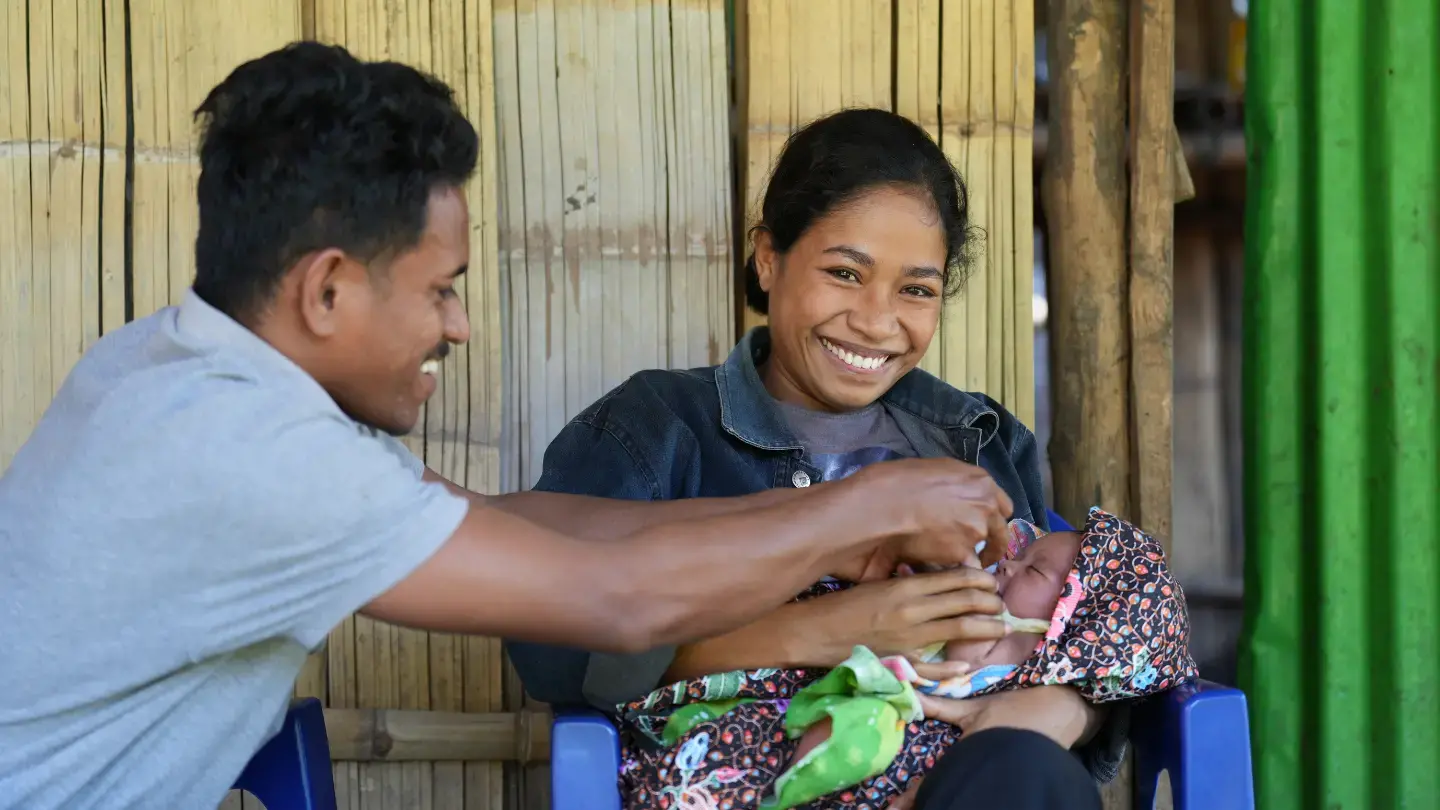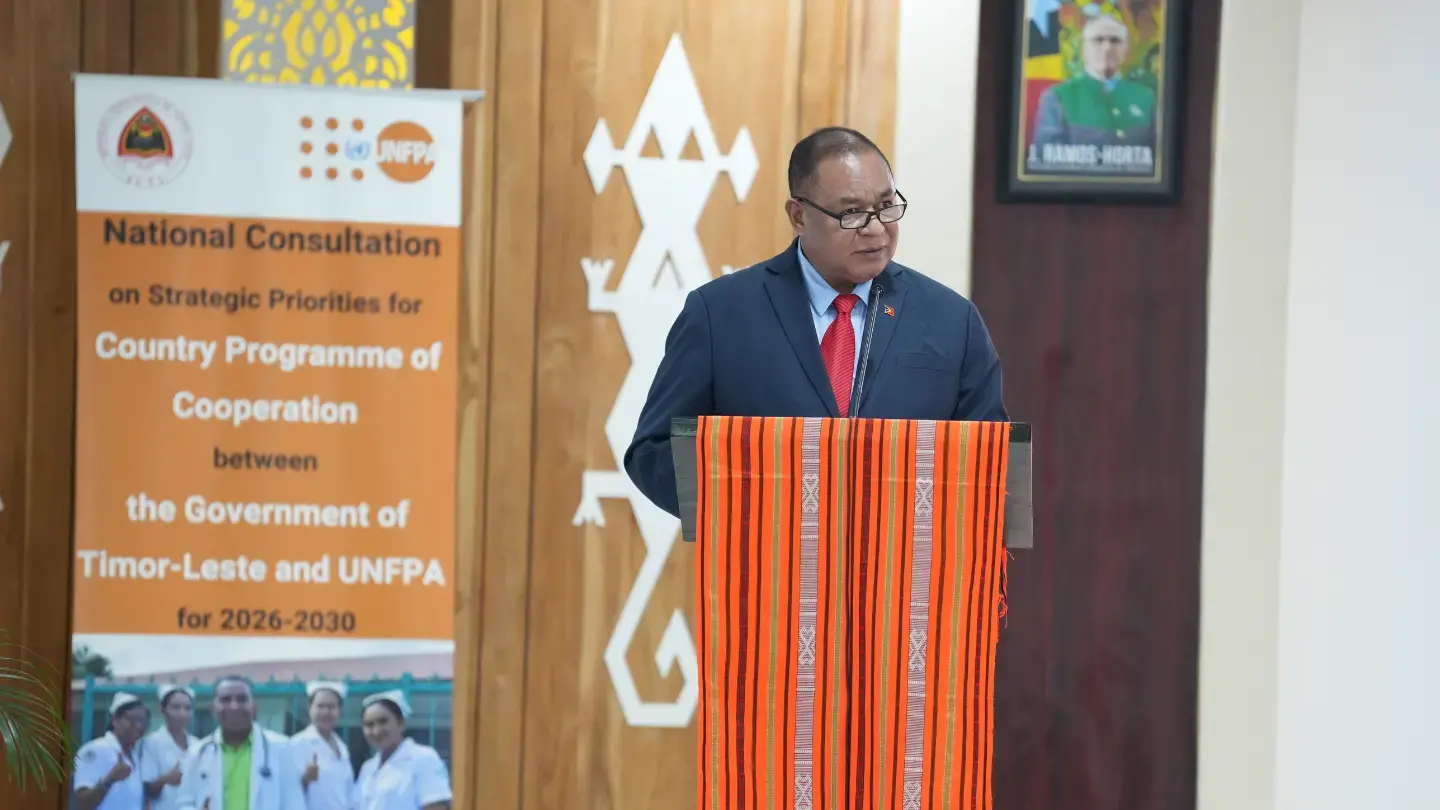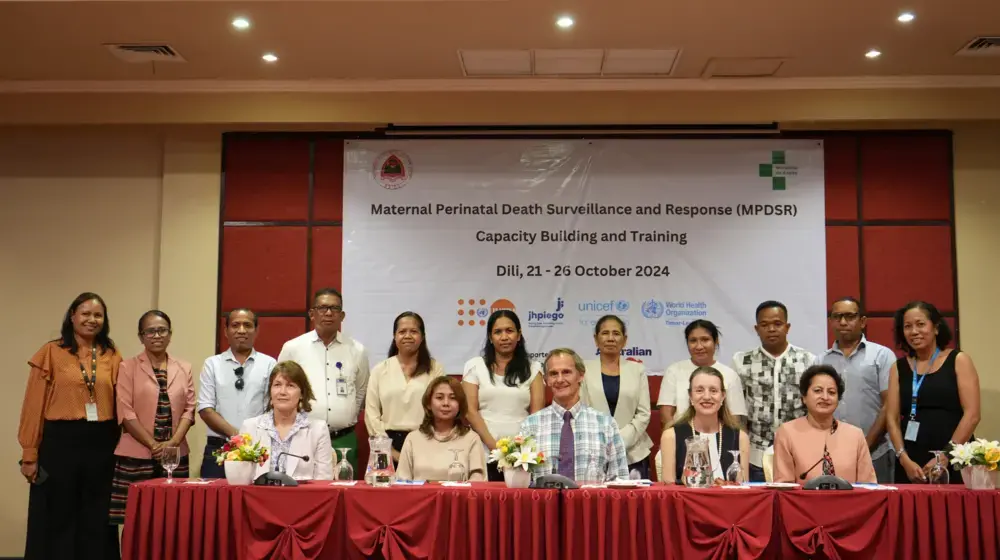The UNFPA, in collaboration with the National University of Timor-Leste (UNTL), funded and facilitated the first ‘Training of Trainers’ course for clinical instructors at the UNTL Midwifery campus. The shared aim is to strengthen the capacity of UNTL clinical instructors by equipping them with the knowledge and skills on ways to teach and train midwifery students to deliver quality healthcare.
The emphasis is to transfer necessary methods and strategies of teaching clinical experiences and student supervision skills to these identified instructors to ensure that students who will be rotating in health facilities for clinical exposure will be able to correctly apply the theoretical knowledge and perform the skills taught to them in the classrooms with full confidence and care.
In this manner, quality supervision of these instructors is crucial in order to produce more qualified midwife students who, following graduation will in effect be able to provide quality health care services to the community especially to those located in very remote areas.
A total of twenty-seven clinical instructors took part in this training course and they came from hospitals, health centers and clinics all over Dili. The training undertaken includes modules on how to manage complications in pregnancy and childbirth and this is in accordance with international best practices. They are also taught how to structure their teaching to deliver an enjoyable and substantive learning experience for their students which will prepare the students on their roles as health service providers at the health facilities in remote districts and villages. In rural areas, the midwives may have to assist in childbirth at a patient’s home rather than in a clinical setting so it is incredibly important that they have the confidence and skills to deal with any complications that may arise. Lives could be saved and this will contribute to the achievement of the Millennium Development Goals.
Although the maternal mortality ratio in Timor-Leste has decreased in recent years, statistics from the Demographic Health Survey 2009-2010 shows that it still remains high at 557 per 100,000 live births. Neonatal morbidity is also one of the leading causes of disabilities in women and an estimated 15% of pregnant mothers may encounter complications during pregnancy and some may even die if left untreated. Given these statistics, ensuring that pregnant women have access to excellent maternal healthcare is absolutely crucial to ensure the health and wellbeing of a future generation. Thereby increasing skilled birth attendance by supplementing the number of qualified and skilled midwives will help to achieve this aim.
At the graduation ceremony at UNTL, the atmosphere was very lively and jovial. The students bought a parting gift for their trainer to show their appreciation. The ceremony was attended by UNFPA Assistant Representative, Dr. Domingas Bernardo, who presented the graduates with their certificates of participation. The Director of the UNTL Midwifery School, Ms. Lidia Gomez, praised the close collaboration between UNFPA and UNTL stating that she is very proud this course has delivered its first batch of graduates. She expressed her hope that UNFPA will continue to work closely with and support UNTL in designing and implementing new training programs in the future.




